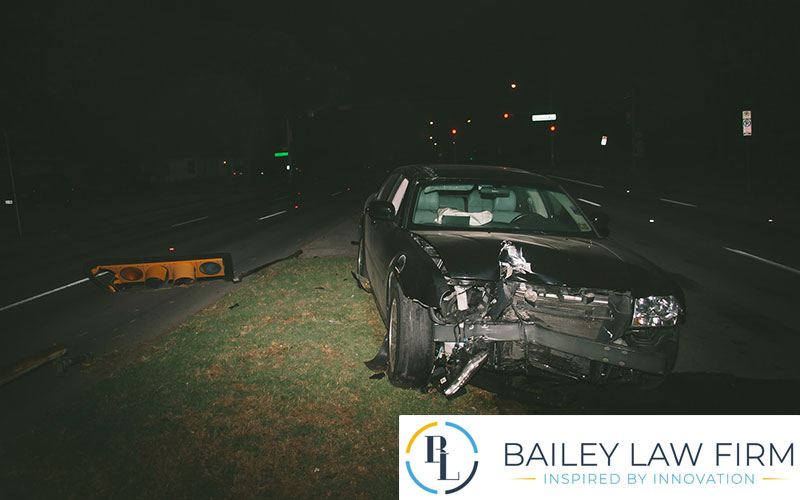
The emotional distress of losing a loved one is often aggravated by the ensuing legal responsibilities. The going could get even tougher if the deceased person happened to be the sole provider for the family. Moreover, if you have aspersions cast on the circumstances of the death, you are propelled by the need for justice. But how do you ascertain whether your close one’s death was a negligent act or a sad consequence of dire conditions? Many factors come into play to answer this question, and ultimately determine if the death was accidental or wrongful.
What is an Accidental Death?
When no person can be held responsible, the death in question is an accidental death. That is, if it is established that a death was not the result of any wrongdoing. Wrongdoing can include negligent, reckless or intentional acts. The difference between accidental and negligence generally turns on the concept of foresee ability is very fact-specific.
For instance, a child chasing a ball suddenly runs on to the road in front of a vehicle. The driver is not at an adequate distance to apply the brakes and stop the car. He is not under the influence of drugs or alcohol, not on the phone and is driving within the permissible speed limits. As tragic as the eventuality might be, the finder of fact (jury, judge or arbitrator) may conclude this sad circumstance to be an accident because a kid running into the road was not foreseeable. However, if the facts indicate this incident occurred in a neighborhood with kids visibly playing in the front yard, the outcome make very likely be different. Under those circumstances, the finder of fact may well conclude, even though the driver was not speeding or distracted, a kid darting in front of the car was foreseeable under the circumstances and required even more vigilance or slower driving.
What is a Wrongful Death?
If a person’s negligence caused the death of another, the death in question is a wrongful death. In such cases there is ground for a lawsuit to be filed, despite the fact that the person harmed is no longer alive. Each state has specific statutes that allow loved-ones to bring wrongful death lawsuits..
As compared to the example above, consider a situation in which a child is playing in her own yard. A drunk driver who is on the phone loses control of his car and swerves off the road. His vehicle rams into the yard where the child was playing. In this scenario, this tragedy would very clearly be the subject of a wrongful death lawsuit.
Causes for Filing a Wrongful Death Claim
Wrongful death claims can be brought against a person who has caused someone’s death through negligence or purposeful harm. Some of the most common causes for filing wrongful death claims include:
- Road Accidents
Wrongful death claims can be filed for death due to accidents caused by negligence, which often includes drunk, distracted or aggressive drivers. Even pedestrian fatality cases, accidents caused by commercial trucks and bicycle accidents fall within this category.
- Medical Malpractice
If a person‘s death was caused due to the negligence of a medical practitioner, the deceased person’s family can file a wrongful death suit to seek compensation. This kind of negligence commonly includes surgical error, medication mishandling, misdiagnosis or delayed diagnosis.
- Criminal Activities
If a person has been killed as the result of an act clearly intended for the same, there is often grounds for seeking compensation by filing a wrongful death suit. Liability can extend beyond the criminal act and may include negligence by other parties, with a legal duty to the victim, who allowed the criminal the opportunity to kill.
Losses Covered by a Wrongful Death Claim
- A survival claim for the suffering endured by the deceased person prior to death
- The medical expenses incurred by the deceased person beneficiaries
- Funeral and burial expenses incurred by the beneficiaries
- Compensation for the deceased person’s income or support
- Compensation for the loss of love and companionship
Who Can File for a Wrongful Death Claim?
The person with the rights to filing a wrongful death suit differs from state to state. However, two broad systems are followed:
- Lord Campbell System: Under this, a wrongful death claim can be brought by a designated beneficiary, who is a person or class of persons specified by the statute, based on the relationship to the deceased. These could be immediate family members, parents, grandparents, domestic partners and financial dependents.
- The Loss-to-Estate System: A wrongful death claim can be brought by a representative of the deceased’s estate to seek compensation for the losses as a result of the death.
How Can You File a Wrongful Death Claim?
Filing a wrongful death lawsuit requires the assistance of an experienced attorney. You ought to get in touch with a competent personal injury attorney Arizona who will help you evaluate all your options and ensure justice is served.
